Find Help
More Items From Ergsy search
-
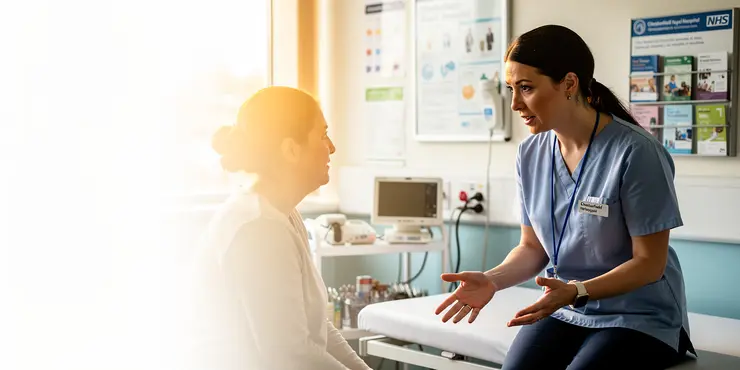
Gastroscopy - What to Expect on Referral to Chesterfield Royal Hospital
Relevance: 100%
-
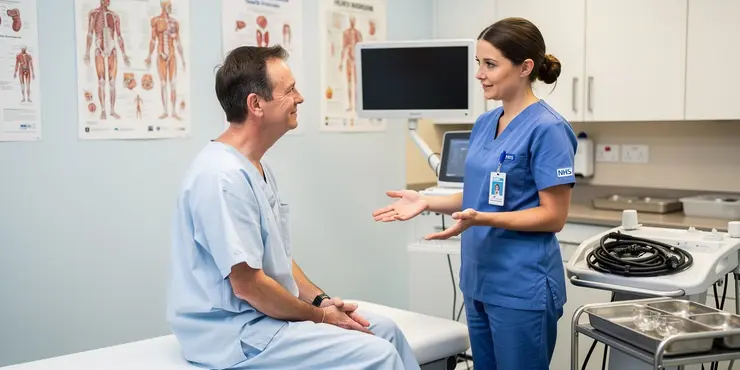
Bournemouth Digestive Diseases Centre: Gastroscopy Procedure (Subtitled)
Relevance: 66%
-
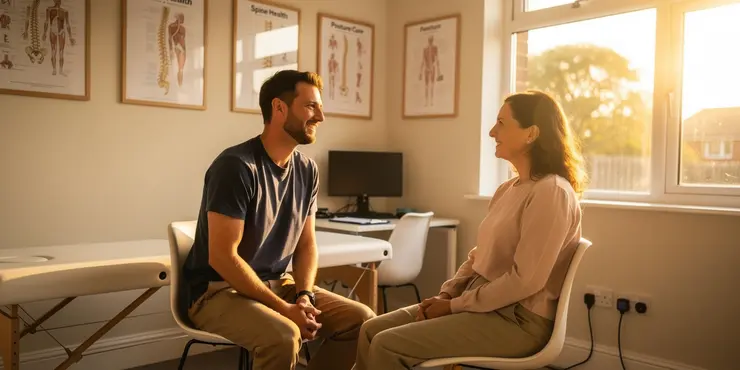
Do I need a referral to see a chiropractor?
Relevance: 51%
-

Do I need a referral to receive medical treatment in the EU?
Relevance: 50%
-
Do I need a referral to see an NHS dentist?
Relevance: 44%
-
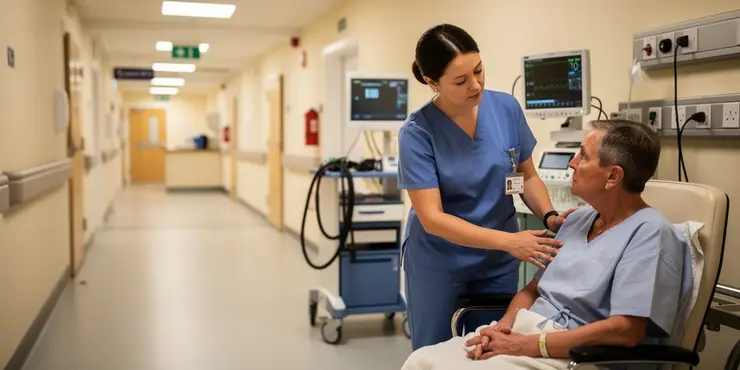
Endoscopy Unit
Relevance: 22%
-
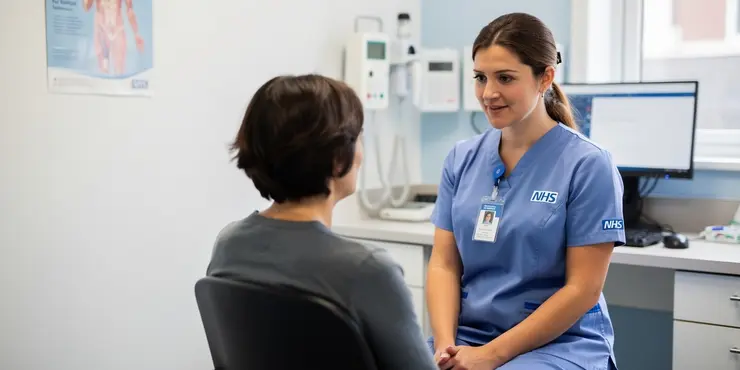
MTW Endoscopy service and training hub
Relevance: 19%
-
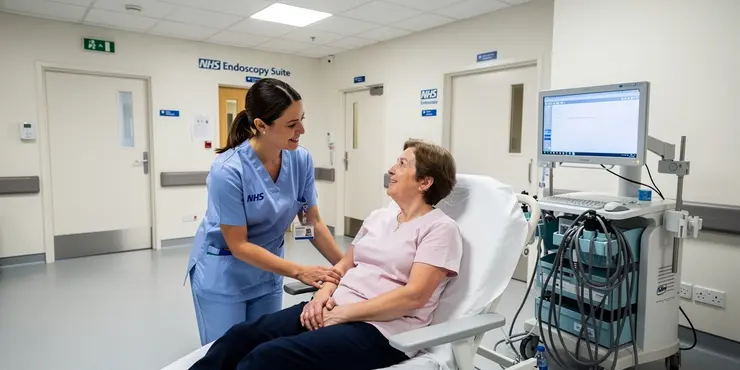
A guide to the new Endoscopy Suite at Chesterfield Royal Hospital NHS Foundation Trust
Relevance: 18%
-
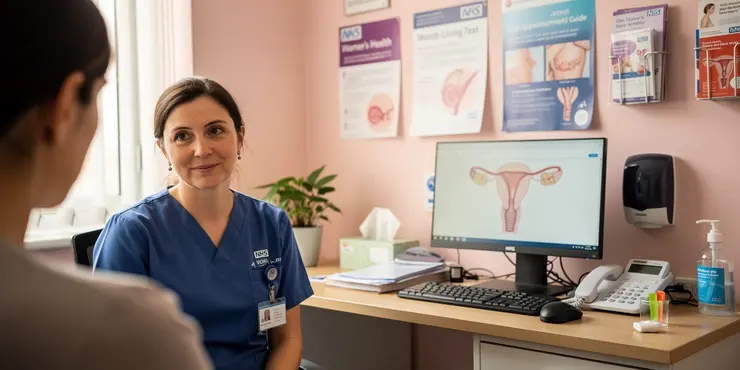
Is the womb lining test covered by the NHS?
Relevance: 16%
-
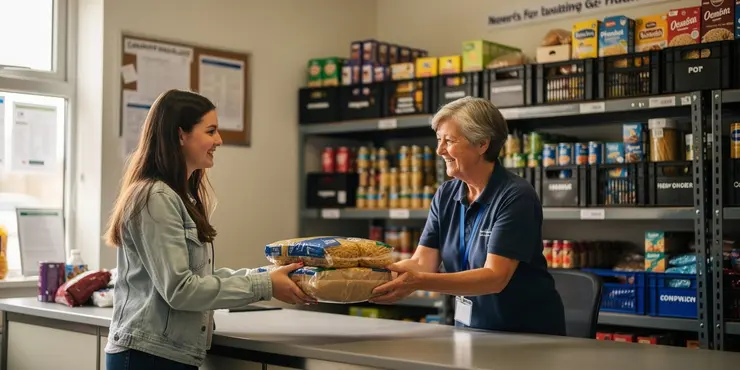
Can anyone use a food bank?
Relevance: 16%
-
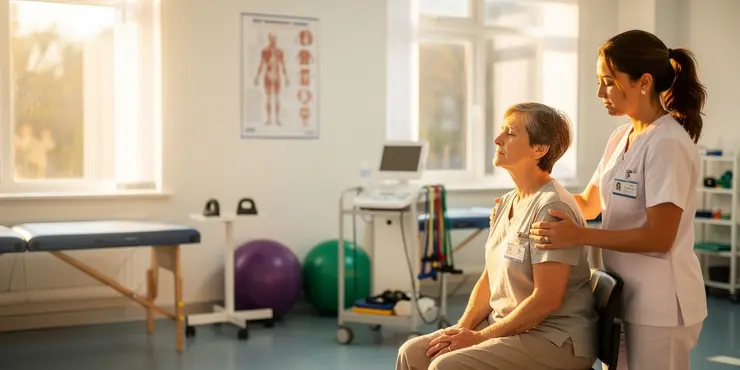
Is a prescription needed for air physiotherapy?
Relevance: 15%
-
How can I get tested for ADHD?
Relevance: 14%
-
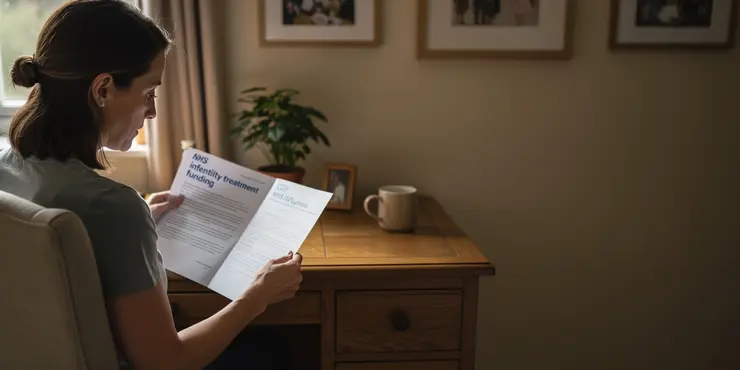
How to apply for NHS funding to treat infertility
Relevance: 14%
-
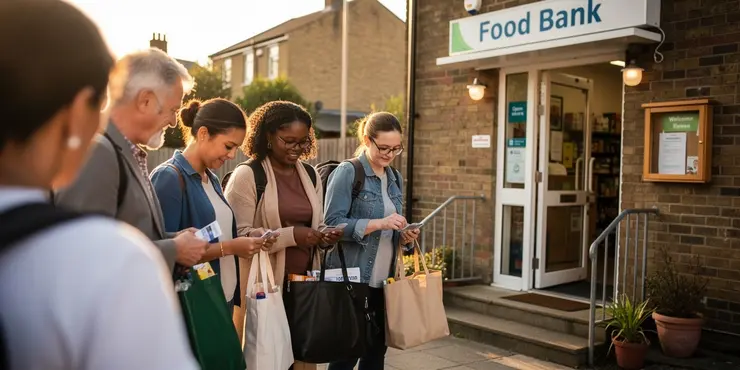
What should I bring with me when visiting a food bank?
Relevance: 14%
-
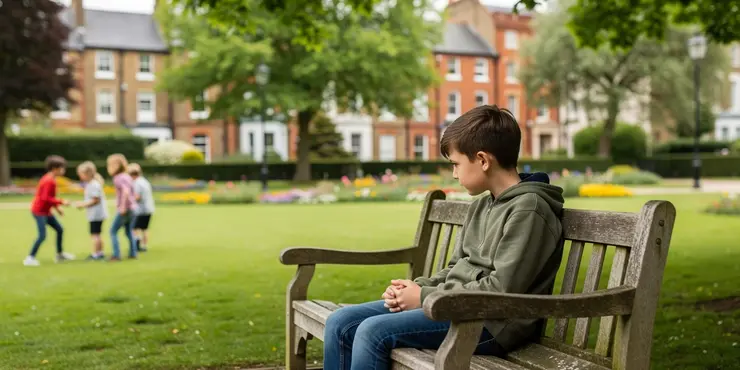
Navigating Mental Health Services for Children and Adolescents
Relevance: 14%
-
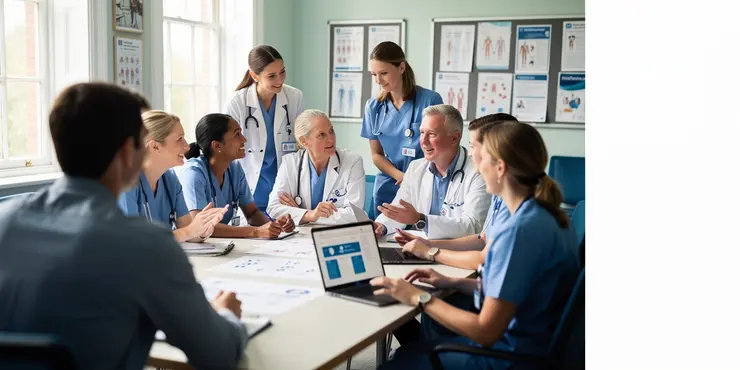
Introducing Social Prescribing - short video
Relevance: 14%
-
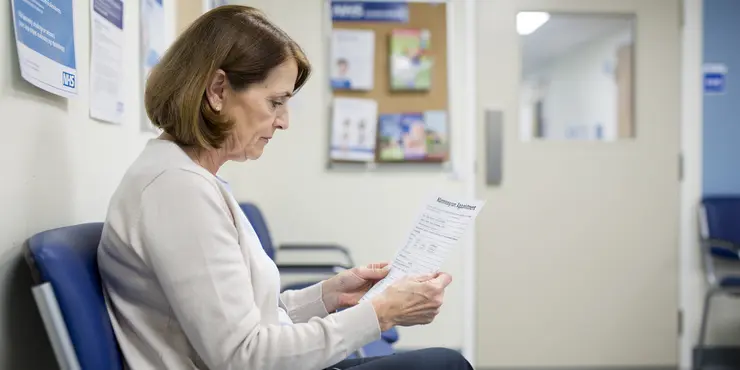
How do I book a mammogram?
Relevance: 13%
-
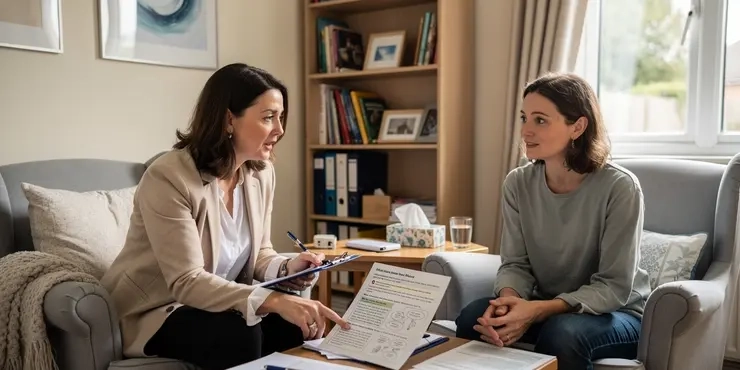
What is CBT
Relevance: 13%
-
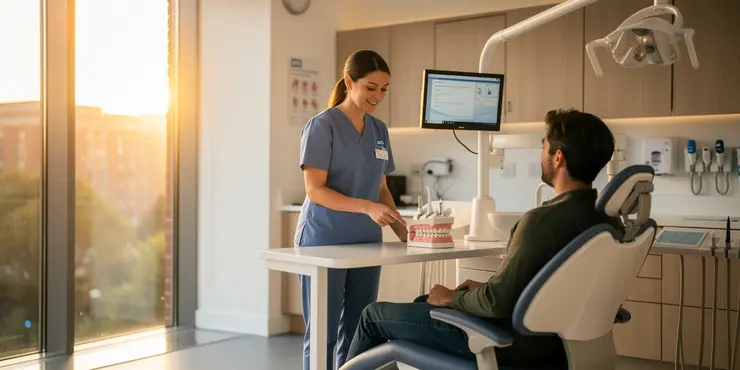
Can I get dental implants on the NHS?
Relevance: 13%
-
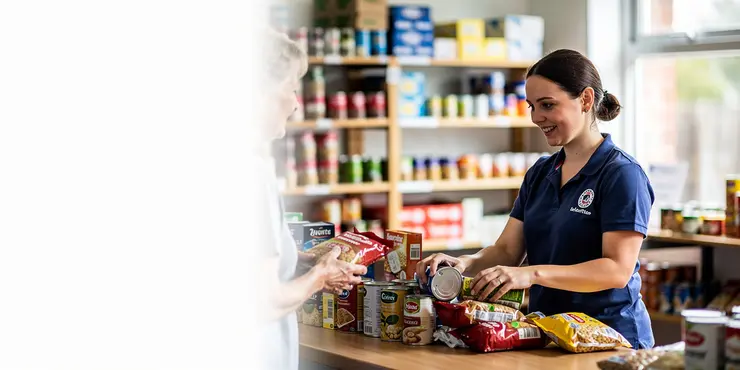
How often can I visit a food bank?
Relevance: 13%
-
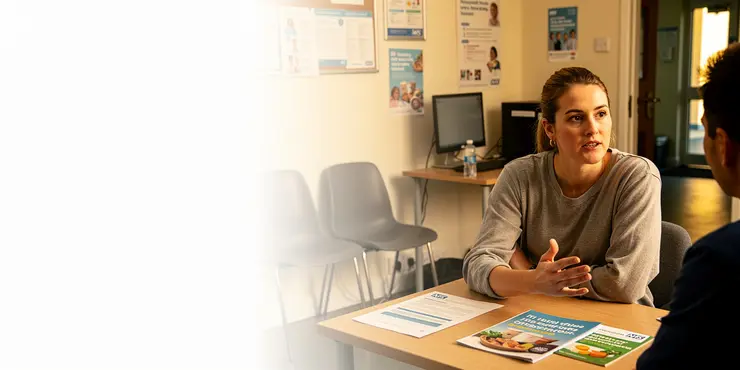
What information do I need to access a food bank?
Relevance: 12%
-
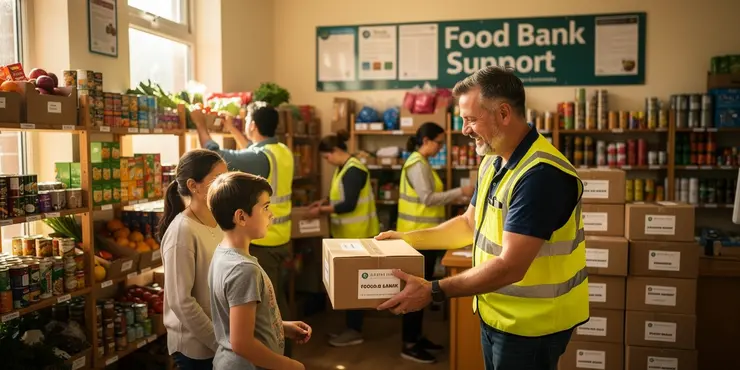
Is there a limit on how much food I can take from a food bank?
Relevance: 12%
-
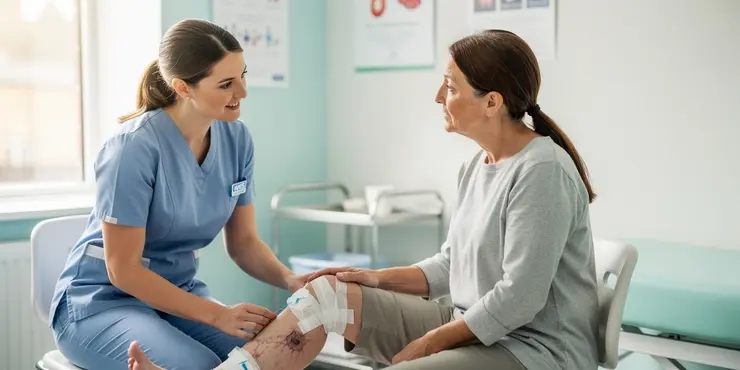
Leg Ulcers
Relevance: 12%
-
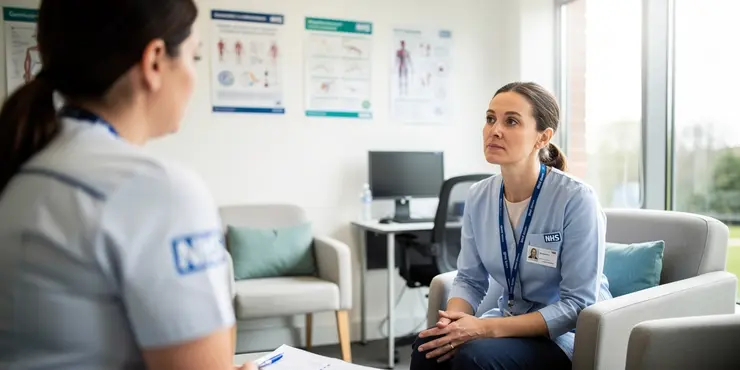
Is genetic screening available for cancer risk?
Relevance: 12%
-

NHS Ayrshire and CVO East Ayrshire - ‘Feet First – Podiatry Services in East Ayrshire’
Relevance: 12%
-
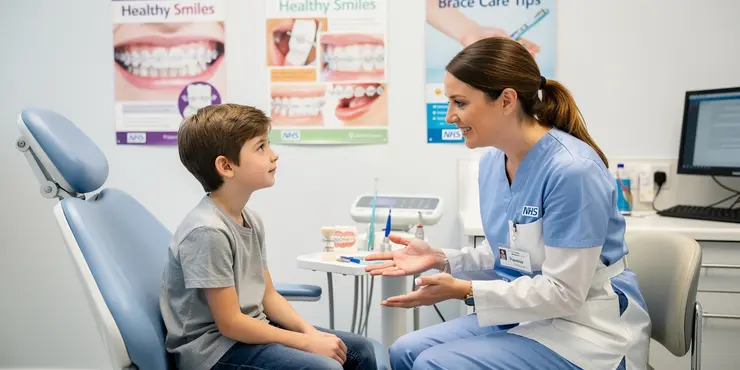
Can my child get braces on the NHS?
Relevance: 11%
-
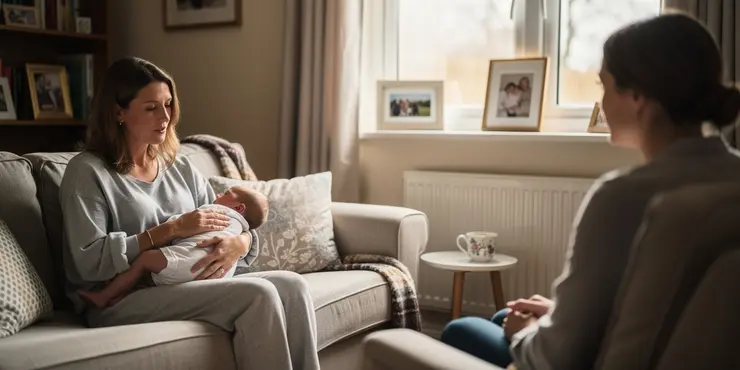
Are there support groups for postnatal depression?
Relevance: 11%
-
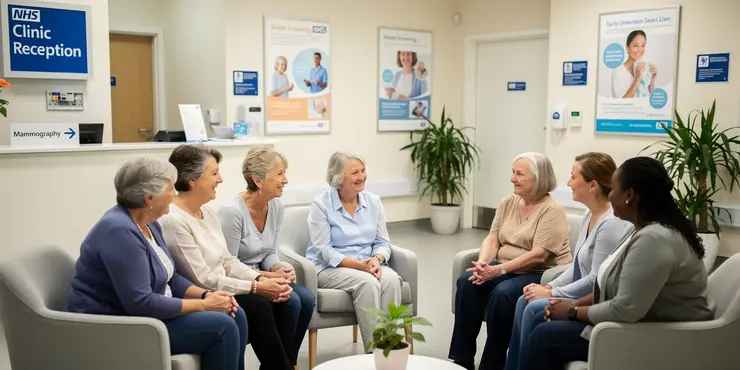
Are mammograms free on the NHS?
Relevance: 11%
-
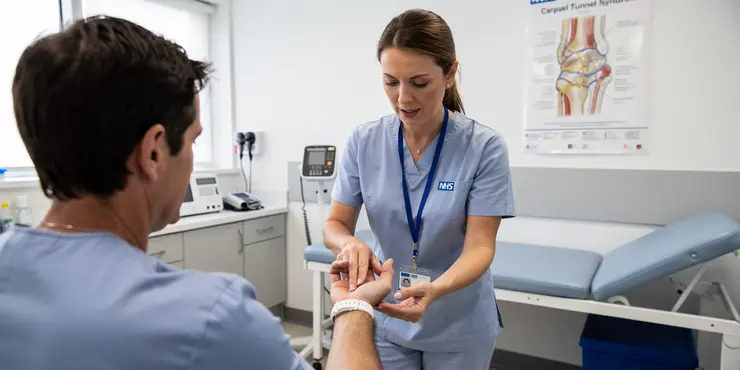
Is Carpal Tunnel Syndrome covered by the NHS?
Relevance: 11%
-
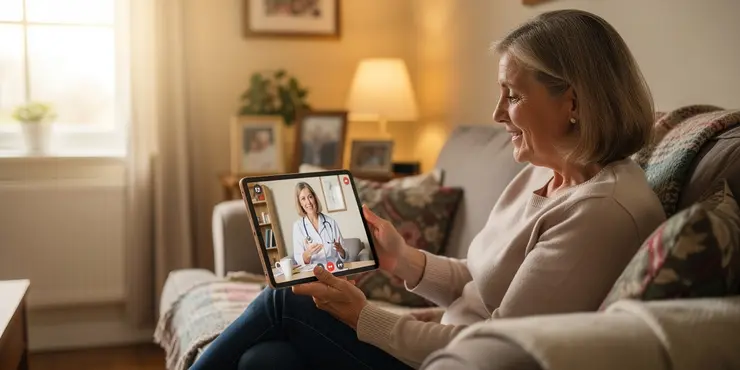
How do I enroll in a virtual ward program?
Relevance: 11%
-
Chiropractic Care on the NHS
Relevance: 10%
-
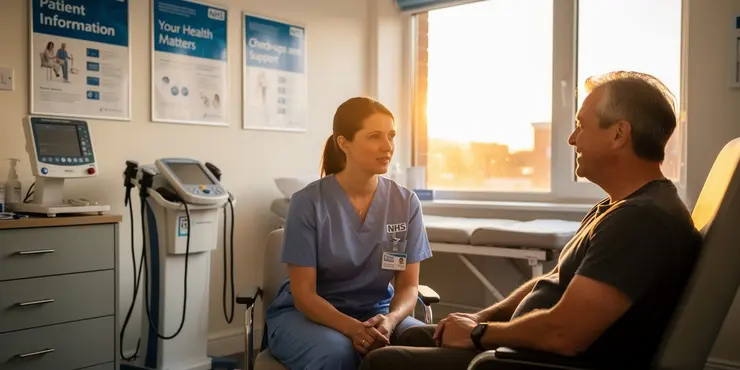
What is an endoscopy?
Relevance: 10%
-
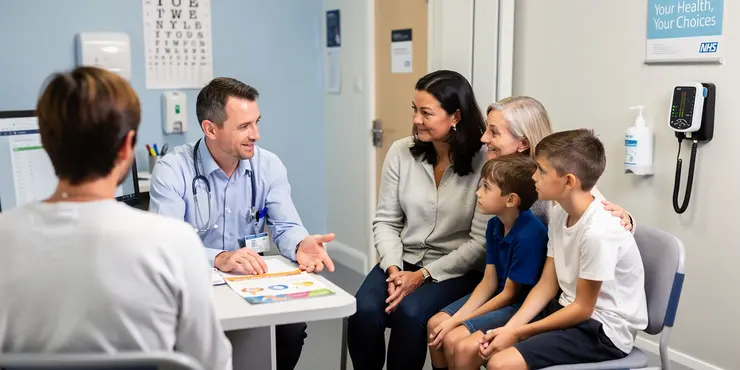
Navigating the NHS: Essential Information for Families
Relevance: 10%
-
Can refugees or immigrants access food banks?
Relevance: 10%
-
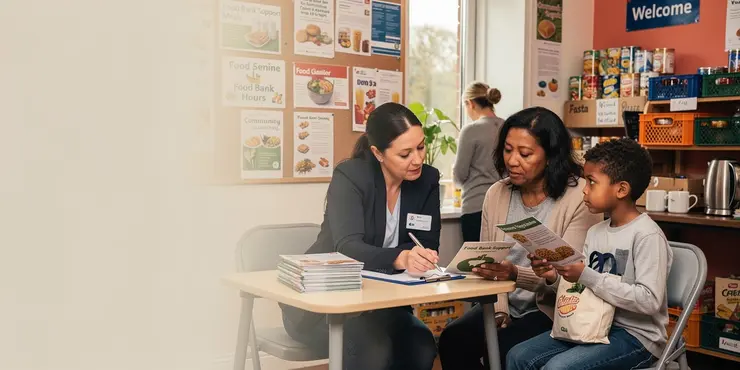
How can I access food banks?
Relevance: 10%
-
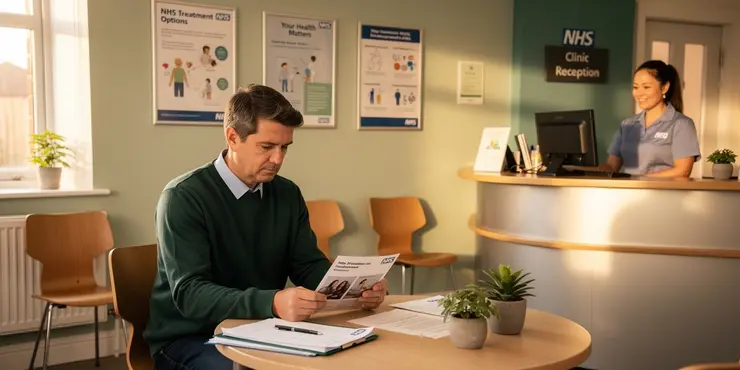
How do I find a suitable hospital or clinic for my treatment?
Relevance: 10%
-
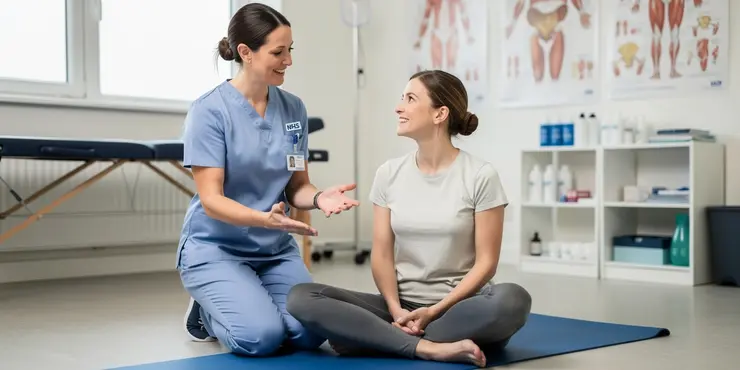
Incontinence and Prolapse - Physiotherapy Advice
Relevance: 9%
-
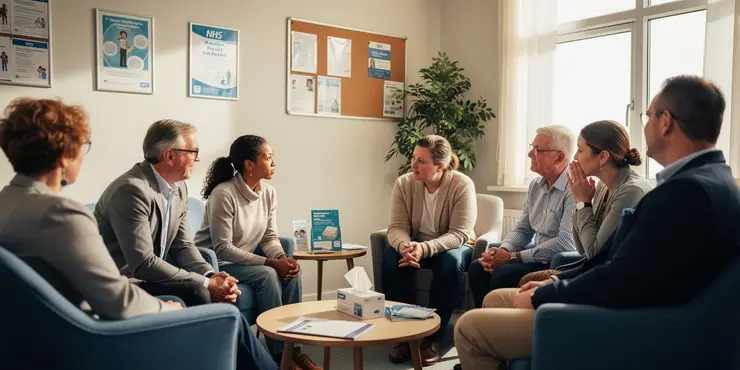
Support Services for Mental Health Amid Economic Uncertainty
Relevance: 9%
-
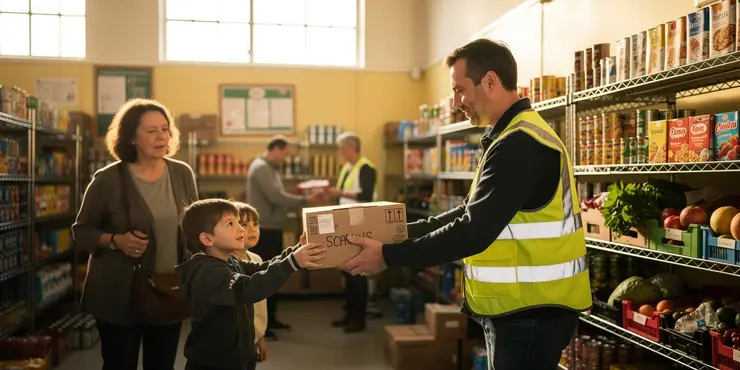
Do I need to make an appointment to visit a food bank?
Relevance: 8%
-
Where can I have my child screened for type 1 diabetes?
Relevance: 8%
Gastroscopy - What to Expect on Referral to Chesterfield Royal Hospital
Referral Process
Upon receiving a referral for a gastroscopy at Chesterfield Royal Hospital, you will be contacted by the Gastroenterology Department to schedule an appointment. You may receive a phone call or a letter in the post detailing the date and time of your procedure as well as any preparation instructions you might need to follow.
Before the Procedure
In the days leading up to your gastroscopy, you will be advised to avoid eating or drinking for a certain period. Typically, you must fast from midnight if your appointment is in the morning. Specific instructions will be provided in your appointment letter. Be sure to inform the hospital staff about any medications you are taking, as some may need to be paused or adjusted.
During the Procedure
On the day of your gastroscopy, you will check in at the Outpatient Endoscopy Unit. A nurse will take you through the admission process and explain the procedure in detail. You will be offered a local anaesthetic spray to numb your throat or a sedative to help you relax. The actual procedure involves a flexible tube (endoscope) being carefully inserted through your mouth and into your stomach to examine your digestive tract.
After the Procedure
Once the gastroscopy is completed, you will be taken to a recovery area to rest until the sedative effects wear off. This typically takes about 30 minutes. If you had a sedative, you will need someone to accompany you home as you will not be able to drive or operate heavy machinery for the rest of the day. The doctor will discuss the findings with you before you leave and provide any necessary follow-up instructions or prescriptions.
Follow-Up Care
Post-procedure, your throat may feel sore for a day or two, and you might feel bloated due to the air introduced during the examination. Most people can resume their normal activities the following day. If any biopsies were taken, your results would be sent to your GP or consultant, who will arrange any further appointments if necessary.
Gastroscopy - What to Expect on Referral to Chesterfield Royal Hospital
Referral Process
If your doctor says you need a gastroscopy, they will contact Chesterfield Royal Hospital. The hospital will reach out to you. You might get a phone call or a letter. This will tell you when your appointment is and what to do before you come in.
Before the Procedure
Before your gastroscopy, you should not eat or drink for some time. If your appointment is in the morning, you should stop eating and drinking the night before. The hospital will send you a letter with these details. Tell the hospital about any medicine you take. You might have to stop taking some of them.
During the Procedure
On the day of your gastroscopy, go to the Outpatient Endoscopy Unit. A nurse will help you and explain what will happen. You can choose to have a spray to numb your throat or medicine to help you relax. The doctor will use a long, thin tube to look inside your stomach through your mouth.
After the Procedure
When the gastroscopy is done, you will rest in a recovery area for about 30 minutes. If you had medicine to relax, you need someone to take you home. You cannot drive or use machines that day. The doctor will talk to you about what they found and tell you if you need to do anything else.
Follow-Up Care
Your throat might be a bit sore, and you could feel full of air for a day or two. Most people feel better by the next day and can do their usual activities. If the doctor took small samples from you, the results will go to your local doctor. They will let you know if you need to come back.
Frequently Asked Questions
What is a gastroscopy?
A gastroscopy is a procedure where a thin, flexible tube called an endoscope is used to examine the lining of the upper part of your digestive system, including the oesophagus, stomach, and first part of the small intestine.
Why might I need a gastroscopy?
You might need a gastroscopy to investigate symptoms such as persistent heartburn, difficulty swallowing, stomach pain, or to check for certain conditions like ulcers, inflammation, or tumours.
How do I prepare for a gastroscopy?
You will be asked to not eat or drink anything for six to eight hours before the procedure to ensure your stomach is empty. Specific instructions will be provided by the hospital.
What can I expect during the gastroscopy procedure?
During the procedure, you will be given a local anaesthetic spray to numb your throat and possibly a sedative to help you relax. The endoscope will be gently inserted through your mouth and guided down into your stomach.
Is a gastroscopy painful?
A gastroscopy is generally not painful but can be uncomfortable. The medical team will take steps to ensure you are as comfortable as possible, using anaesthetics and sedatives as needed.
How long does the procedure take?
The actual examination usually takes about 15 to 30 minutes. However, you should plan for the entire visit to take a few hours to accommodate preparation and recovery time.
What are the risks of a gastroscopy?
While complications are rare, the risks include reactions to sedatives, bleeding from biopsy sites, or minor tears in the digestive tract lining. The medical team will discuss these risks with you before the procedure.
Can I go home right after the procedure?
If you receive a sedative, you will need to stay at the hospital until it wears off, which can take a few hours. It’s advisable to have someone accompany you home and avoid driving or operating machinery for 24 hours.
Will I receive the results immediately?
Some preliminary results might be discussed with you right after the procedure. However, biopsy results or more detailed findings will take longer, and a follow-up appointment or letter will be arranged.
Is there anything I should do after the gastroscopy?
You should rest for the remainder of the day after the procedure, drink plenty of fluids, and follow any specific aftercare instructions given by the hospital.
Can I eat and drink after the procedure?
Yes, but you should wait until the numbness in your throat has completely worn off to avoid choking. Start with light meals and gradually return to your normal diet.
Do I need to stop taking my medications before the procedure?
Inform the hospital of any medications you are taking. You may need to adjust or stop certain medications before the procedure based on their advice.
How do I book a gastroscopy at Chesterfield Royal Hospital?
You will be referred by your GP or a specialist. After referral, the hospital will contact you to schedule the appointment and provide preparation instructions.
What should I bring with me to the appointment?
Bring your appointment letter, a list of your current medications, your personal ID, and any questions you might have for the medical team.
Who can I contact if I have more questions or concerns about my gastroscopy?
You can contact the Endoscopy Unit at Chesterfield Royal Hospital directly for any additional questions or concerns about your procedure.
What is a gastroscopy?
A gastroscopy is a test that helps doctors look inside your tummy and throat. A thin tube with a camera goes down your throat. It lets the doctor see if everything is okay. This test might feel a little funny, but it helps doctors make sure you are healthy.
If you are nervous, you can talk to someone you trust. You can also try deep breathing to relax. Listening to calming music can help too.
A gastroscopy is a test. A thin, bendy tube called an endoscope is used. This tube looks at the inside of the top part of your food pipe, your stomach, and the start of your small intestine.
For extra help, you can use pictures or videos to understand better. You can also ask someone to read it with you and explain it.
Why do I need a gastroscopy?
You might need a test called a gastroscopy if your tummy feels bad. This test helps the doctor look inside your tummy. It can find out why you have tummy pain or feel sick.
Some tools can help you understand better, like pictures or videos. Asking someone you trust to explain things can also be helpful.
You might need a gastroscopy if you have problems like bad heartburn that won't go away, trouble swallowing, or a sore tummy. A gastroscopy helps doctors look for things like ulcers, swelling, or lumps in your stomach.
Tools that can help you understand this are audiobooks or videos about gastroscopies. It's also good to ask a grown-up or a doctor if you have questions.
How do I get ready for a gastroscopy?
A gastroscopy is a test to look at the inside of your food pipe and stomach. Here are some simple steps to help you get ready:
- Do not eat or drink for a few hours before the test. Your doctor will tell you exactly how long.
- Ask a friend or family member to go with you and help you get home after the test.
- Wear comfortable clothes.
- If you take any medicine, ask your doctor if you should take it on the day of the test.
If you find it hard to remember things, you can:
- Make a list of what to do.
- Use a calendar or reminder on your phone.
- Ask someone you trust to help you.
The doctor will ask you to stop eating and drinking for a while before the procedure. This is usually six to eight hours. This is to make sure your stomach is empty. The hospital will give you special instructions on what to do.
What happens during a gastroscopy?
A gastroscopy is a test to look inside your throat, stomach, and the start of your small intestine.
During the test, a thin tube with a camera is put through your mouth. The camera helps the doctor see inside.
The test lasts about 15 to 30 minutes. You might feel a little uncomfortable, but it should not hurt.
The doctor may spray your throat to make it numb or give you medicine to help you relax.
You should have someone with you to take you home afterward because the medicine can make you sleepy.
It can be helpful to use tools like audio books or videos to learn more. Ask someone you trust to explain it to you if you have questions.
When you have the procedure, the doctor will spray your throat to make it numb so you don’t feel anything. You might also get some medicine to help you relax. Then, the doctor will carefully put a small tube with a camera on it (called an endoscope) into your mouth and down into your stomach.
Does a gastroscopy hurt?
A gastroscopy is a test. It checks inside your throat and stomach.
You might feel a bit uncomfortable. Some people say it feels strange.
Before the test, the doctor can give you some medicine to help you relax.
You can also ask for something to make your throat feel numb. This can help so it doesn't hurt.
If you feel worried, talk to your doctor. They can help you feel better.
A gastroscopy is a test that checks inside your tummy. It is not usually painful, but it might feel a bit uncomfortable. The doctors and nurses will help you feel better by giving you medicine if you need it.
How long will it take?
The test takes about 15 to 30 minutes. But you should plan for the whole visit to take a few hours. This is because you need time to get ready and to rest afterward.
What could go wrong during a gastroscopy?
Problems do not happen very often, but there are some risks. You might have a reaction to the sleep medicine. You could bleed a little where the doctor takes a small piece for testing. There might also be tiny tears inside your stomach or intestines. The doctor will talk to you about these risks before they do the procedure.
Can I leave and go home after the treatment?
Yes, you can usually go home after the treatment. Here’s what you should know:
- You might feel a bit sleepy. Rest at home is good.
- It’s helpful to have someone take you home.
- Ask your doctor if there is anything special you need to do.
If you have questions, talking to your doctor can help.
If you get a medicine to make you sleepy, you will stay at the hospital until you feel better. This can take a few hours. It’s a good idea to have someone with you to help you get home. Do not drive or use machines for one whole day after that.
Will I get my results right away?
No, you won't get your results right away. It might take some time.
Here is what you can do while you wait for your results:
- Ask: You can ask the person who tested you when you will get the results.
- Write it down: Write down the date when you should hear back, so you remember.
- Check regularly: You can ask or check if the results are ready on that date.
The doctor might tell you some quick results right after the test. But to know more about what's happening, like if they checked a small piece from inside you, it will take more time. You will get another appointment or a letter to explain these results.
What should I do after the gastroscopy?
Here are some things to help you after a gastroscopy:
- Rest: Make sure to rest when you get home.
- Eat and Drink: Start with soft foods and drinks.
- Ask for help: Have a friend or family member with you.
- Listen to your doctor: Follow any advice your doctor gives you.
If you feel sick or have questions, talk to your doctor.
After your procedure, you should rest for the rest of the day. Drink lots of water and listen to any special advice from the hospital. You can use pictures, simple checklists, or ask someone to remind you if you need help remembering what to do.
Can I eat and drink after the procedure?
Yes, you can eat and drink after the procedure. It is a good idea to have soft foods that are easy to chew. Drinking water is also very important. If you feel sick, tell an adult.
Yes, you can eat. But wait until your throat is not numb anymore. This will stop you from choking. Start with small, easy meals. Then slowly go back to your normal food.
Should I stop taking my medicine before the procedure?
Talk to your doctor or nurse about your medicine. They can tell you if you need to stop or not. Use a calendar to write down when to take your medicine or when to stop. You can also ask someone you trust to help you remember.
Tell the hospital about any medicine you are taking. The hospital might tell you to change or stop some medicine before the procedure. They will give you advice.
How can I book a gastroscopy at Chesterfield Royal Hospital?
If you need a gastroscopy at Chesterfield Royal Hospital, you can follow these steps:
- Talk to your doctor. They can help you decide if you need the test.
- Your doctor will give you a form or letter to take to the hospital.
- Call the hospital. The phone number is on the form or letter.
- Tell them you need to book a gastroscopy. This is a special test to look inside your belly.
- Pick a day and time that is good for you. The hospital will tell you when you can come in.
If you need help, ask a family member, friend, or support worker. They can call the hospital with you or help you understand the form.
Your doctor will help you see another doctor at the hospital. The hospital will call you to set up a visit. They will tell you what to do to get ready for it.
What to Bring to Your Appointment
Here's what to take with you when you go to the appointment:
- Your ID or passport.
- Any letters about your appointment.
- A list of any medicines you take.
- If you wear glasses, bring them too.
- You can bring a friend or family member to help you.
Remember, it's okay to ask questions if you are not sure about something.
Take these things with you when you have an appointment:
- Your appointment letter.
- A list of medicine you take now.
- Your ID, like a driver's license.
- Any questions you want to ask the doctor.
For help, you can:
- Use a calendar app to remember your appointment.
- Write down questions and medicines on paper so you don't forget.
- Ask a friend or family member to help you.
Who can I talk to if I have more questions or worries about my gastroscopy?
If you have questions or worries about your procedure, you can talk to the Endoscopy Unit at Chesterfield Royal Hospital. They will help you.
Useful Links
This website offers general information and is not a substitute for professional advice.
Always seek guidance from qualified professionals.
If you have any medical concerns or need urgent help, contact a healthcare professional or emergency services immediately.
Some of this content was generated with AI assistance. We’ve done our best to keep it accurate, helpful, and human-friendly.
- Ergsy carfully checks the information in the videos we provide here.
- Videos shown by Youtube after a video has completed, have NOT been reviewed by ERGSY.
- To view, click the arrow in centre of video.
- Most of the videos you find here will have subtitles and/or closed captions available.
- You may need to turn these on, and choose your preferred language.
- Go to the video you'd like to watch.
- If closed captions (CC) are available, settings will be visible on the bottom right of the video player.
- To turn on Captions, click settings .
- To turn off Captions, click settings again.
More Items From Ergsy search
-

Gastroscopy - What to Expect on Referral to Chesterfield Royal Hospital
Relevance: 100%
-

Bournemouth Digestive Diseases Centre: Gastroscopy Procedure (Subtitled)
Relevance: 66%
-

Do I need a referral to see a chiropractor?
Relevance: 51%
-

Do I need a referral to receive medical treatment in the EU?
Relevance: 50%
-
Do I need a referral to see an NHS dentist?
Relevance: 44%
-

Endoscopy Unit
Relevance: 22%
-

MTW Endoscopy service and training hub
Relevance: 19%
-

A guide to the new Endoscopy Suite at Chesterfield Royal Hospital NHS Foundation Trust
Relevance: 18%
-

Is the womb lining test covered by the NHS?
Relevance: 16%
-

Can anyone use a food bank?
Relevance: 16%
-

Is a prescription needed for air physiotherapy?
Relevance: 15%
-
How can I get tested for ADHD?
Relevance: 14%
-

How to apply for NHS funding to treat infertility
Relevance: 14%
-

What should I bring with me when visiting a food bank?
Relevance: 14%
-

Navigating Mental Health Services for Children and Adolescents
Relevance: 14%
-

Introducing Social Prescribing - short video
Relevance: 14%
-

How do I book a mammogram?
Relevance: 13%
-

What is CBT
Relevance: 13%
-

Can I get dental implants on the NHS?
Relevance: 13%
-

How often can I visit a food bank?
Relevance: 13%
-

What information do I need to access a food bank?
Relevance: 12%
-

Is there a limit on how much food I can take from a food bank?
Relevance: 12%
-

Leg Ulcers
Relevance: 12%
-

Is genetic screening available for cancer risk?
Relevance: 12%
-

NHS Ayrshire and CVO East Ayrshire - ‘Feet First – Podiatry Services in East Ayrshire’
Relevance: 12%
-

Can my child get braces on the NHS?
Relevance: 11%
-

Are there support groups for postnatal depression?
Relevance: 11%
-

Are mammograms free on the NHS?
Relevance: 11%
-

Is Carpal Tunnel Syndrome covered by the NHS?
Relevance: 11%
-

How do I enroll in a virtual ward program?
Relevance: 11%
-
Chiropractic Care on the NHS
Relevance: 10%
-

What is an endoscopy?
Relevance: 10%
-

Navigating the NHS: Essential Information for Families
Relevance: 10%
-
Can refugees or immigrants access food banks?
Relevance: 10%
-

How can I access food banks?
Relevance: 10%
-

How do I find a suitable hospital or clinic for my treatment?
Relevance: 10%
-

Incontinence and Prolapse - Physiotherapy Advice
Relevance: 9%
-

Support Services for Mental Health Amid Economic Uncertainty
Relevance: 9%
-

Do I need to make an appointment to visit a food bank?
Relevance: 8%
-
Where can I have my child screened for type 1 diabetes?
Relevance: 8%


